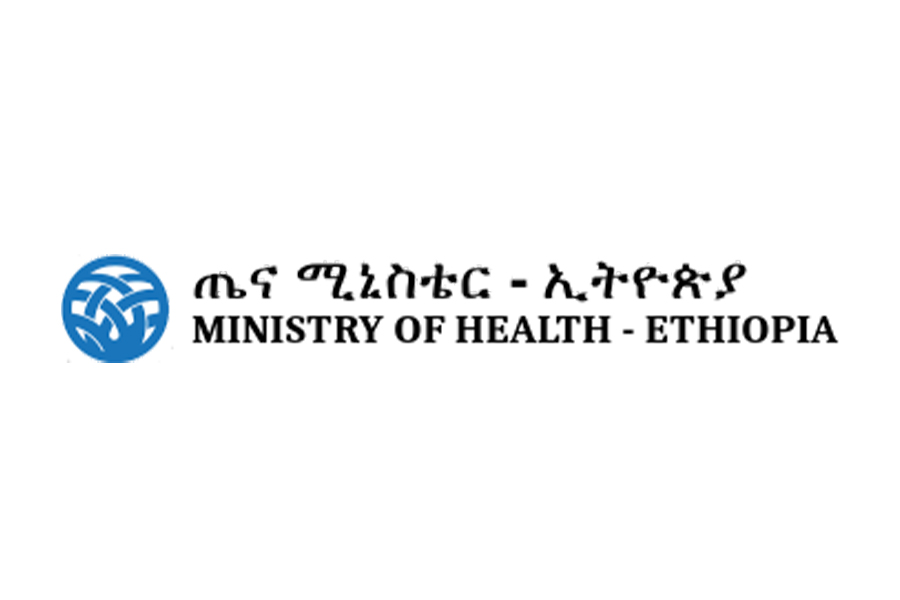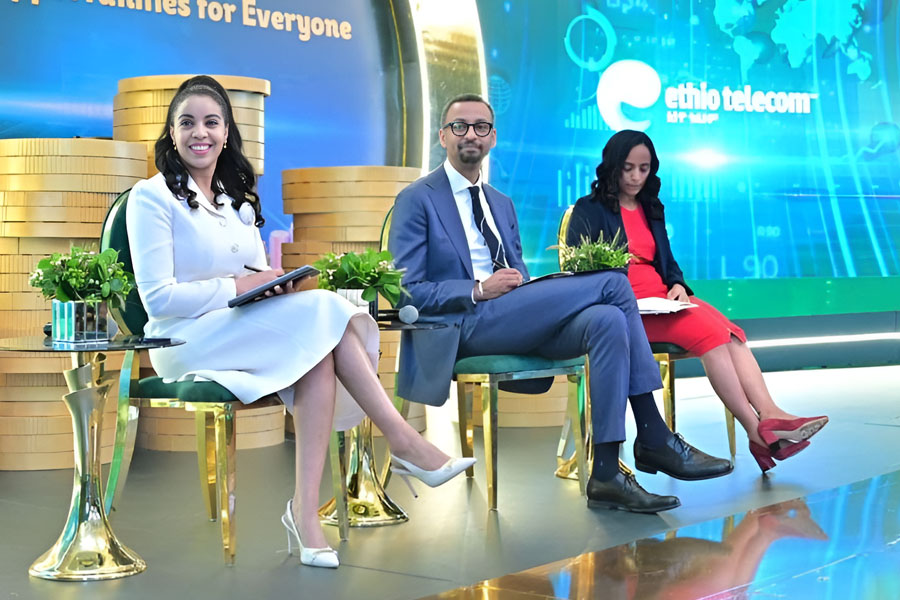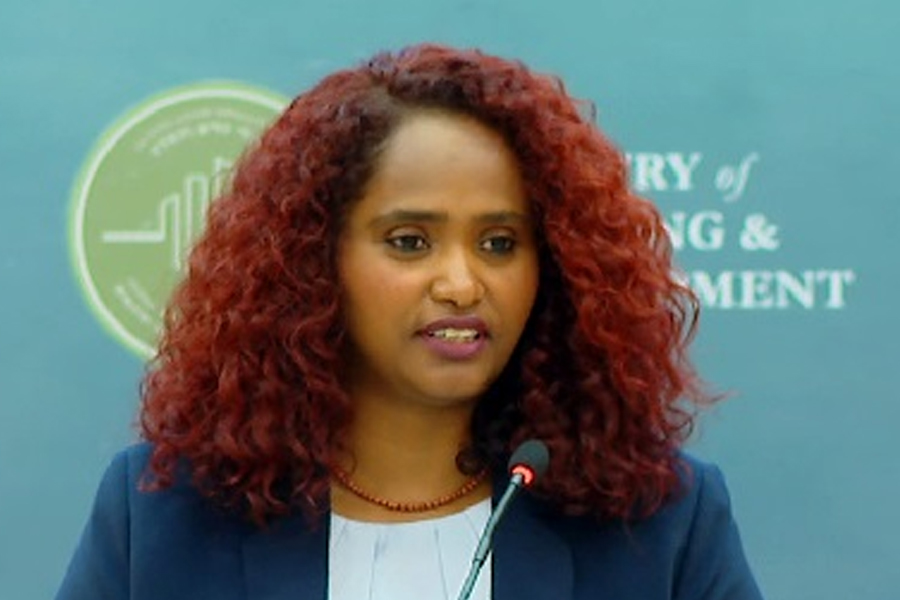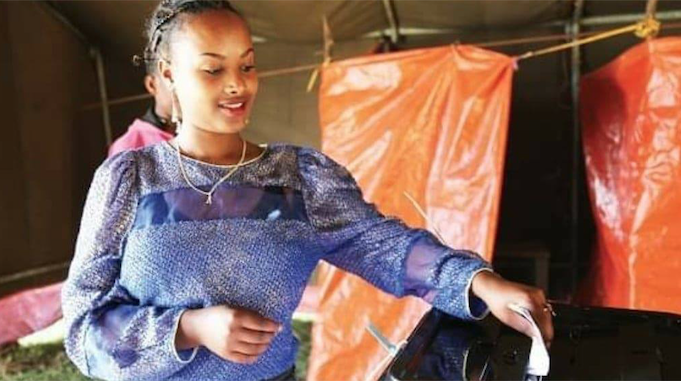
Life Matters | Sep 07,2019
Oct 18 , 2025
By Bola Ahmed Tinubu , Jakaya Kikwete
Glancing at the news, one could easily conclude that our collective wish for a more peaceful and equal world is slipping out of reach. Ongoing conflicts, climate change, human displacement, and economic shocks do indeed paint a bleak picture. But we cannot afford to surrender to pessimism.
To face these and other cross-border challenges head-on, we need everyone to play a part, including the more than 270 million children globally who are currently out of school.
Education fuels inclusive growth, builds resilience, and lays the foundation for peace and prosperity. It creates opportunities not only for one generation, but also for those that follow. That is why we, as current and former African heads of state, are co-hosting the Global Partnership for Education’s (GPE) 2026-30 financing campaign, which aims to mobilise five billion dollars to provide a better education to 750 million children.
We are joined in this effort by Italian Prime Minister Giorgia Meloni, who understands that education is central to both global development and security.
The GPE’s ambitious campaign comes at a critical moment. Education systems are overstretched, underfunded, and under pressure, strained by conflict, extreme climate events, and economic instability. Lower-income countries face a 100 billion dollars annual gap to fund their schools, and 70pc of the 10-year-olds in low- and middle-income countries cannot read a simple text. The skills and ideas of today’s children could change the world for the better, but only if we put education at the heart of our efforts to address global challenges.
We urge all world leaders to join us in meeting the GPE’s ambitious target. Education financing should evolve to meet today’s risks and realities. Multiple crises are competing for limited resources in donor countries, while servicing public debt consumes a growing share of low-income countries’ budgets. One out of every three lower-income countries spends more on debt servicing than on critical areas of human development, such as education.
Sustainable education financing requires a fundamentally different approach, one that aligns diverse partners and funding sources behind a shared national goal. We need self-sustaining education systems that can deliver consistent quality for all children. Rather than fragmented short-term projects, we need coherent and long-term investment strategies led by governments and embedded in national budgets.
Too often, aid flows and private capital bypass public systems, distorting priorities and undermining institutional strength. For the best results, all financing, whether domestic, international, philanthropic, or private, should be channelled toward a single national strategy to transform education. Such investments strengthen systems rather than duplicate them, increasing the likelihood that reforms will be resilient and less donor-dependent.
Lasting progress comes only when countries lead the process themselves. But that requires a shift in mindset. Education should be seen as a pillar of economic infrastructure, with resources directed toward programs to build skills at scale. This, in turn, will ultimately increase earnings, expand the tax base, and drive stronger overall economic growth.
We urge governments everywhere to increase domestic financing and place education at the centre of their national budgets and policies. Only by making education a top domestic priority can international support achieve lasting impact. This philosophy also drives the GPE’s work. As both a financing mechanism and a convening platform, it helps partner countries define and finance their national education priorities by bringing together governments, donors, development banks, philanthropists, private investors, and civil society around a common reform agenda.
When countries organise their education systems around a unified strategy, every child has the chance to learn, and individual successes add up to a greater whole. Societies prosper as economies are reshaped from the ground up. Since 1980, education has accounted for half of global economic growth, 70pc of income gains among the poorest one-fifth of humanity, and at least 40pc of the reduction in extreme poverty.
These numbers prove that education is the best investment we can make to yield greater returns for everyone. Each additional year of schooling increases salaries, broadens the tax base, and strengthens public budgets to fund the next cohort of learners. As local industries expand and government finances improve, the initial investment becomes an economic flywheel.
To usher in a world where educated citizens drive progress and build resilient societies from within, we should channel all available resources into country-owned systems. Only then can we ensure that children everywhere receive the education they need, not only this year, but every year.
PUBLISHED ON
Oct 18,2025 [ VOL
26 , NO
1329]

Life Matters | Sep 07,2019

Radar | Mar 09,2019

Radar | Dec 19,2018

Radar | Sep 27,2025

Fortune News | Oct 06,2024

News Analysis | Oct 20,2024

Viewpoints | Dec 21,2019

Fortune News | Sep 22,2024

Fortune News | Nov 23,2019

Radar | Sep 10,2021

Photo Gallery | 174816 Views | May 06,2019

Photo Gallery | 165037 Views | Apr 26,2019

Photo Gallery | 155291 Views | Oct 06,2021

My Opinion | 136727 Views | Aug 14,2021

Dec 22 , 2024 . By TIZITA SHEWAFERAW
Charged with transforming colossal state-owned enterprises into modern and competitiv...

Aug 18 , 2024 . By AKSAH ITALO
Although predictable Yonas Zerihun's job in the ride-hailing service is not immune to...

Jul 28 , 2024 . By TIZITA SHEWAFERAW
Unhabitual, perhaps too many, Samuel Gebreyohannes, 38, used to occasionally enjoy a couple of beers at breakfast. However, he recently swit...

Jul 13 , 2024 . By AKSAH ITALO
Investors who rely on tractors, trucks, and field vehicles for commuting, transporting commodities, and f...

Oct 18 , 2025
The political establishment, notably the ruling party and its top brass, has become p...

Oct 11 , 2025
Ladislas Farago, a roving Associated Press (AP) correspondent, arrived in Ethiopia in...

Oct 4 , 2025
Eyob Tekalegn (PhD) had been in the Governor's chair for only weeks when, on Septembe...

Sep 27 , 2025
Four years into an experiment with “shock therapy” in education, the national moo...

Oct 18 , 2025 . By NAHOM AYELE
In a sweeping reform that upends nearly a decade of uniform health insurance contribu...

Oct 18 , 2025 . By BEZAWIT HULUAGER
A bill that could transform the nutritional state sits in a limbo, even as the countr...

Oct 18 , 2025 . By SURAFEL MULUGETA
A long-planned directive to curb carbon emissions from fossil-fuel-powered vehicles h...

Oct 18 , 2025 . By BEZAWIT HULUAGER
Transaction advisors working with companies that hold over a quarter of a billion Bir...